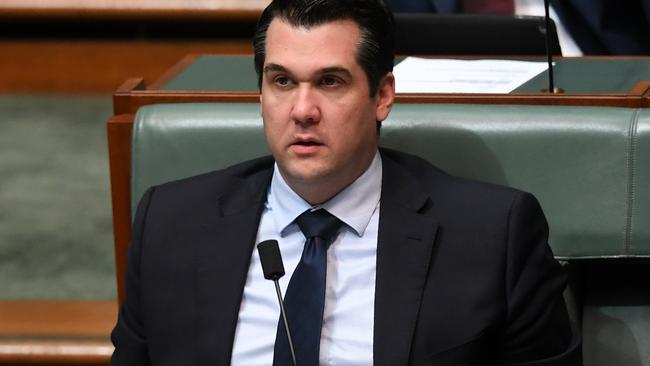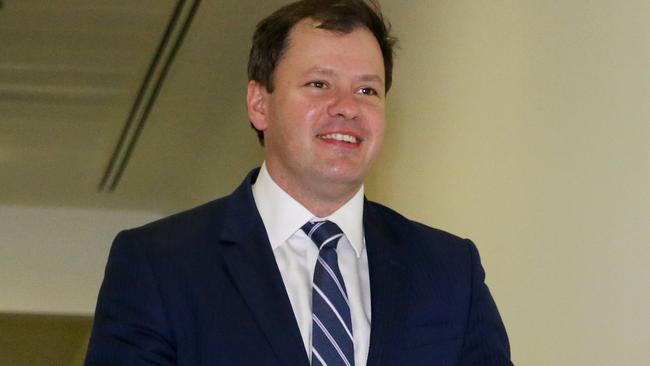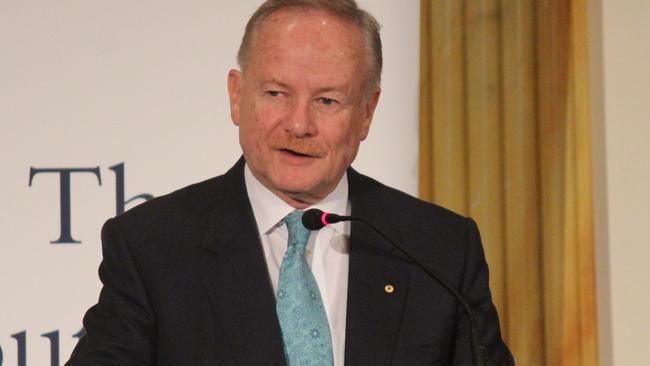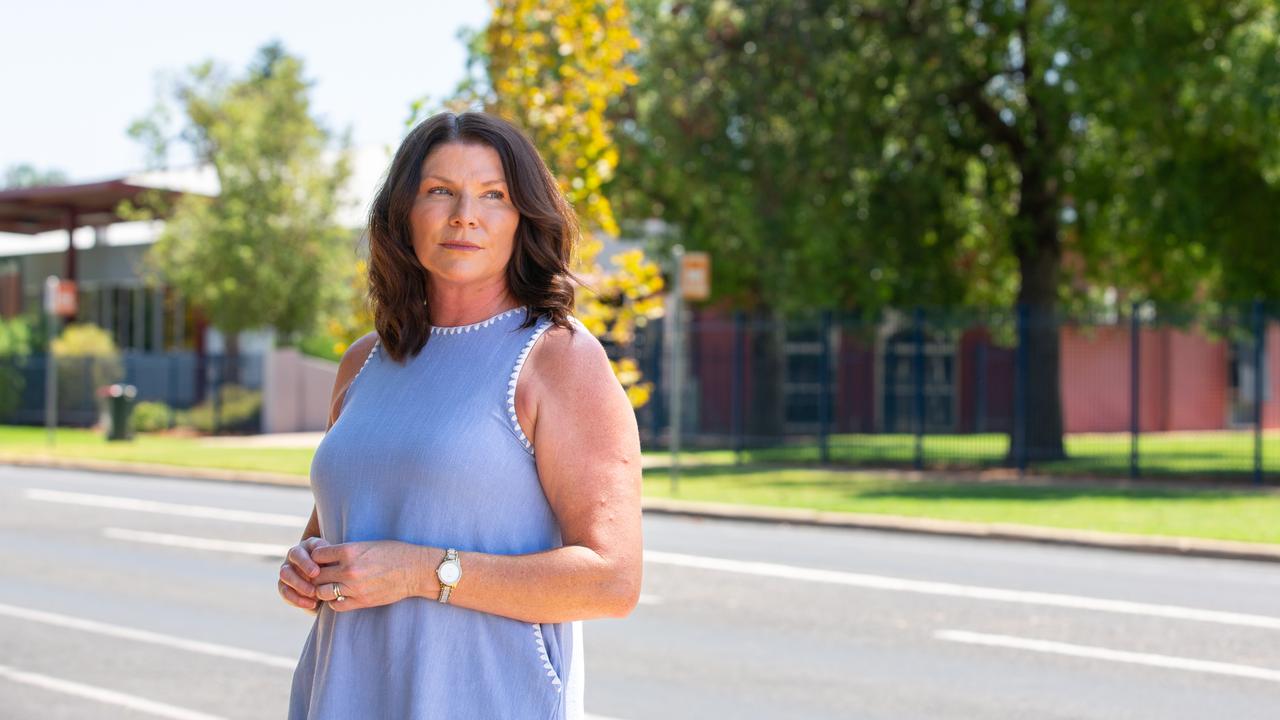Teachers’ union ‘a roadblock to quality’
MP Michael Sukkar has blamed teachers’ unions for standing in the way of efforts to reverse Australia’s academic slide.

Assistant Minister Michael Sukkar has blamed teachers’ unions for being a “roadblock’’ standing in the way of the government’s efforts to improve teacher quality and empower principals to halt Australia’s academic slide.
Mr Sukkar went on the offensive after Andreas Schleicher, the co-ordinator of the respected Program for International Student Assessment (PISA), warned exclusively in The Australiantoday that the “most significant drop in Australia’s PISA scores occurred among its top performers’’.
And, Mr Schleicher wrote, ‘’the quarter of the most disadvantaged 15-year-olds in Singapore now show results similar to the average Australian student’’.
Mr Sukkar, the assistant minister to the Treasurer, said Education Minister Simon Birmingham and the government was “absolutely dedicated to the task of some of these tougher reforms that will help improve our standards, but again we’ve got a big roadblock in the way’’.
“The roadblock is the education union, the teachers’ federations who basically are now just political arms of the Labor Party and anything that is suggested by a Coalition government they will oppose, even if it’s in the best interests of students,’’ he told Sky News.
PISA is conducted every three years and measures the ability of 15-year-olds to use their science, mathematics and reading knowledge and skills to meet real-life challenges. Students from Singapore, the world’s smartest 15-year-olds, are two years and four months ahead of Australian students in maths, 18 months ahead in science and 12 months in reading.
Australian Education Union federal president Correna Haythorpe hit back at Mr Sukkar’s assault on education and teachers’ unions.
“If Michael Sukkar is concerned about PISA, then he should look to the federal government’s own schools funding plan, which puts the brakes on investment in schools and puts the brakes on children’s learning achievement,’’ Ms Haythorpe told The Australian.
“Public schools will lose $3 billion over the next two years alone compared to the original agreements struck after the first Gonski review.’’
She said the union’s submission to the Independent Review into Regional, Rural and Remote Education underscored that the impact of the government’s policies would fall very heavily on children in rural public schools, who make up 70 per cent of school enrolments in those areas.
“If we’re talking about road blocks, let’s look at federal government policy,’’ Ms Haythorpe said. “The OECD, PISA and NAPLAN back us on the need for fair investment in public schools, 87 per cent of which will remain below the schooling resource standard even in 2023 under the Turnbull funding plan.’’
“These are inconvenient truths for the federal government, and it’s time we saw action, not misplaced blame.’’
NAPLAN is the National Assessment Program — Literacy and Numeracy which is conducted in Australia every year and assesses Years 3, 5, 7 and 9 in reading, writing, language conventions such as grammar, and numeracy.
Labor frontbencher Ed Husic hit back and accused Mr Sukkar of making everything “a political point about the Labor Party, nothing is about getting on and finding a solution’’.
“Blaming teacher unions for what’s going on in the country right now is completely ridiculous,’’ Mr Husic said. “There was a way to be able to tie funding to better outcomes, getting our country to be in the top five for reading, science, maths.’’
“Getting better teacher quality, more power to principals, I mean these controls were in place and tied to the funding back in 2013 when we were there. They all got pulled apart by the Coalition, now they are wondering why things aren’t working,’’ Mr Husic said.

Mr Schleicher, who is in Australia as a keynote speaker at the Early Start Conference 2017 at the University of Wollongong, warned about the economic challenges facing Australia if its academic standards languish.
“Without the right skills, people end up on the margins of society, technological progress doesn’t translate into economic growth, Australia will face an uphill struggle to remain ahead in this hyper-connected world, and ultimately, lose the social glue that holds together democratic societies,’’ Mr Schleicher wrote.
“Achieving greater equity in education is not only a social justice imperative, it is also a way to use resources more effectively, and to increase the supply of skills that fuel economic growth and promote social cohesion.’’
He is urging Australia to look to the surprising number of features shared by high-performing -nations such as Singapore and China. These include convincing the community to value education, believe in the success of every child, and ensure teaching is more intellectually attractive. “Australia used to have one of the world’s leading school systems,” Mr Schleicher writes, “but over the last decade learning outcomes have dropped to levels closer to the average of school systems in the industrialised world.
The last round of PISA was conducted in 2015, and the results were released late last year.
Former Business Council of Australia president and Audit Commission chairman Tony Shepherd lamented Australia’s lack of academic competitiveness on the world stage. “It is a disgrace given the substantial investment we already make and not to mention the projected substantial increases,’’ he said.
“We are condemning our children to a second-class future.’’

Speaking on Sky today, Mr Sukkar said the government had said for money years “that throwing more money at education isn’t the panacea, notwithstanding the fact we did legislate Gonski 2.0 which has pumped an additional $23.5 billion into education plus an extra $2.5 billion into early childhood education’’.
“But notwithstanding those additional resources, Minister Birmingham has made clear that actually teacher quality, parents’ involvement, principal autonomy, these sorts of issues are what we really need to be focusing on if we want to increase the outcomes, not just the inputs,’’ he said.
But Mr Sukkar said one of the hurdles was “very, very strong education unions and teacher’s federations who basically reject that there’s any problem’’
“They want very restrictive practices and it doesn’t help education ministers lift our standards.
We do need to rethink some of these things, notwithstanding our additional investments, money isn’t the only answer.’’
Labor’s deputy and education spokeswoman Tanya Plibersek said Australia was not a high spending education nation but agreed that improving academic standards was about more than money and it was about what funding enabled the system to do.
“That’s why I was so very disappointed when Christopher Pyne became the (previous) Education Minister he said the reforms Labor insisted on in our arrangements with the states were just red tape and could be ignored by the states,’’ she told the ABC.
Ms Plibersek said Labor had set the target for Australian students to be in the top five nations internationally and that ambition had been abandoned by the Coalition.
“There are in their fifth year of office, so if they have a plan for school improvement, if they say it’s not just about money, it’s about reforms – what are their reforms.’’
Education Minister Simon Birmingham, who will talk to Mr Schleicher while he is in Australia, pointed out that Singapore spends less money than Australia per student, has larger class sizes and pays its teachers less.
He said Mr Schleicher highlighted an important point that “culture and attitude are critical’’ in education.
“We’ve sought as a government to try to encourage parents to do more through the launch of our Learning Potential app which is about giving people really good pointers around how they can help to engage their children from the youngest ages at home in a learning experience that complements what they have in the classroom,’’ Senator Birmingham said.
“Many parents work very hard. We need to work harder on the education of our children, starting at the earliest years in terms of that discipline of reading to your children pretty much every night. It builds their vocabulary before they start school.’’



